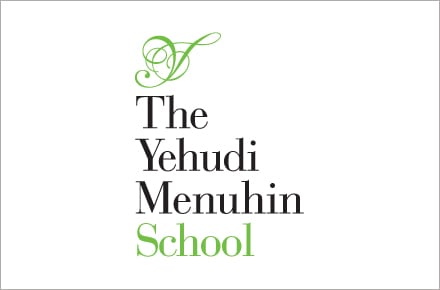 If you are into classical music at all, there is no chance that you have not heard of Yehudi Menuhin. He is the single most popular and heralded name in recent classical music history. He had his professional stage debut in 1923, at the tender age of seven, performing with the San Francisco Symphony Orchestra. Apparently that night he played “Nigun” (a word that means “tune” or “melody” in Hebrew) composed especially for him by the renowned composer Ernst Bloch. Menuhin continued on to become one of the greatest names in recent music history, receiving countless awards and achievements throughout his lifetime. These include the title of Goodwill Ambassador to the UN, and knighthood conferred by The Queen of England. And he left recordings that will be cherished for all time by collectors of classical music.
If you are into classical music at all, there is no chance that you have not heard of Yehudi Menuhin. He is the single most popular and heralded name in recent classical music history. He had his professional stage debut in 1923, at the tender age of seven, performing with the San Francisco Symphony Orchestra. Apparently that night he played “Nigun” (a word that means “tune” or “melody” in Hebrew) composed especially for him by the renowned composer Ernst Bloch. Menuhin continued on to become one of the greatest names in recent music history, receiving countless awards and achievements throughout his lifetime. These include the title of Goodwill Ambassador to the UN, and knighthood conferred by The Queen of England. And he left recordings that will be cherished for all time by collectors of classical music.
Among all this, he did one other thing: in 1963, he established the Yehudi Menuhin School to recruit young talent and nurture them to their finest. It continues to run to this day, with a current enrollment of seventy-seven students between the ages of 8 and 19 who train in strings, piano, and classical guitar. Its instructors include violin superstar Maxim Vengerov and the legendary Itzhak Perlman, and its students are selected from among the most talented and prodigious of the world. The aim of this school is to discover the Menuhins and Vengerovs of the coming generations at an early age, and to make sure that their talent receives the best training available.
Istanbul welcomed students from the Yehudi Menuhin School two weeks ago as part of the Bach in Istanbul Festival. Eight students were featured: Elvina Auh, Dillon Jeffares, and Berfin Aksu on the violin, Lorena Canto Wlcteche on the viola, Misha Favis on the cello, Lucia Polo Morena on double bass, and Ursula Perks and Leyla Cemiloglu on the piano. All were in their teens, with an age range between 15 and 19. The program featured an hour and a half of Bach, Liszt, Schumann, and Wieniawski, and each piece featured the students in a solo performance or in duets or trios.
The most interesting piece was the “Nigun” mentioned above, which is the second movement of Bloch’s Baal Shem Suite. Apparently composed in 1923 especially for 7-year-old Menuhin, this piece was played again a century later by the prodigies of this era, who were brought together by a school established by Menuhin himself. How’s that for coming full circle? This piece featured a stunning performance from Berfin Aksu on violin and Leyla Cemiloglu on piano. In fact, Cemiloglu took part in almost every single piece and, in my non-professional opinion, she seemed not to be a “student” of sixteen years of age, but a professional in total command of the piano. The same was true for all the students. There is no doubt that we will be encountering these names again in the years to come; they may be the Maxim Vengerovs, the Itzhak Perlmans, the Rubinsteins or the Rachmaninovs of the generations to come.
Almost as interesting for me was the venue chosen for the performance: the Neva Salom Synagogue! I had long wanted to visit a synagogue in Istanbul and was almost just as excited about the venue as I was about the program. Making it inside was no ordinary walk into a concert hall. The 2004 attacks on the synagogue have forced the building to practice extra security controls, including heavy doors one had to be buzzed through, metal detectors, and x-rays. I was saddened to see that a house of religion and harmony had been turned into a fortress of security precautions, although there is more than just reason to do so.
The program, however, delivered hope for a better world. An audience of all ages, with different religions and backgrounds, had come together to experience the universal language of music. The final piece featured six students on stage. Each had a different background, race, nation, culture and upbringing, but all were united by the universality of music. The legacy of Yehudi Menuhin, the unique setting of the Neva Salom Synagogue, and the prodigious talent of the performers all combined to make a memorable evening.










Awesome article…wishing for peace for people of all races and beliefs!
I feel sorry that I mıssed.
I feel sorry that I mıssed.